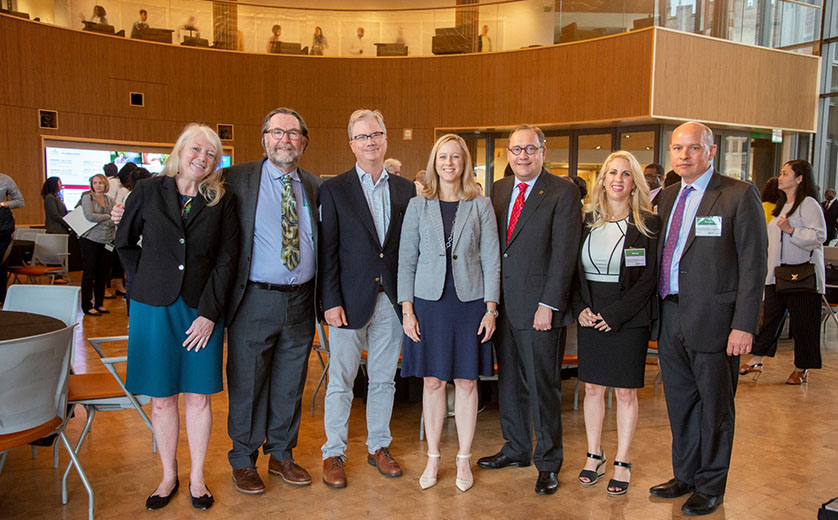On June 12, Washington’s University’s new Social Policy Institute hosted Kathy Kraninger, Director of the Consumer Financial Protection Bureau (CFPB), along with a panel of esteemed contributors to discuss the link between emergency savings and long-term economic mobility. The Brown School’s Clark-Fox Policy Institute and the university’s Gephardt Institute for Civic and Community Engagement co-sponsored the talk.
The event brought together more than 125 policymakers, practitioners, and researchers, and it included remarks by the following: Dave Sieminski, Policy Analyst, CFPB; Mary McKay, Neidorff Family and Centene Corporation Dean of the Brown School; Holden Thorp, Provost Emeritus; and Andrew Martin, Chancellor.
As an introduction to Kraninger’s talk, Michal Grinstein-Weiss, director of the Social Policy Institute and Shanti K. Khinduka Distinguished Professor at the Brown School, facilitated a panel discussion featuring David Williams, Chief Tax Officer, Intuit; Tishaura Jones, St. Louis City Treasurer; and Ray Boshara, Assistant Vice President, Federal Reserve Bank of St. Louis.
Panelists explored the benefits of emergency savings and wealth creation from stability against life events to teaching saving habits beginning in childhood. They also highlighted potential solutions and action steps for addressing these needs, including institutional behavior change and the development of partnerships across sectors.
Kraninger then spoke further about the overwhelming absence of emergency savings accounts in the United States. “It led me to believe that we at the CFPB needed to take a leadership role in helping to improve this situation and to empower consumers to build more liquid savings,” she said.
She then introduced the CFPB’s new initiative Start Small, Save Up which launched in February 2019. “Our vision for Start Small, Save Up is to increase people’s financial well-being through education, partnerships, research, and policy or regulatory improvements that increase people’s opportunities to save and empower them to realize their personal savings goals,” she said.
Kraninger highlighted strategies and barriers to reaching goals for Start Small, Save Up, as well as solutions that the CFPB and partner organizations have already begun to employ. She stated, “Our hope is that we can contribute to helping consumers be more financially resilient so that when they take care of that short-term goal or cover that unexpected expense with their liquid savings, they feel financially empowered to start saving up again.”
“The Bureau has many responsibilities,” Kraninger concluded, “but certainly one of the most important and compelling is to help consumers protect and build their financial capability and financial well-being. We hope you all will join us in this effort.”
